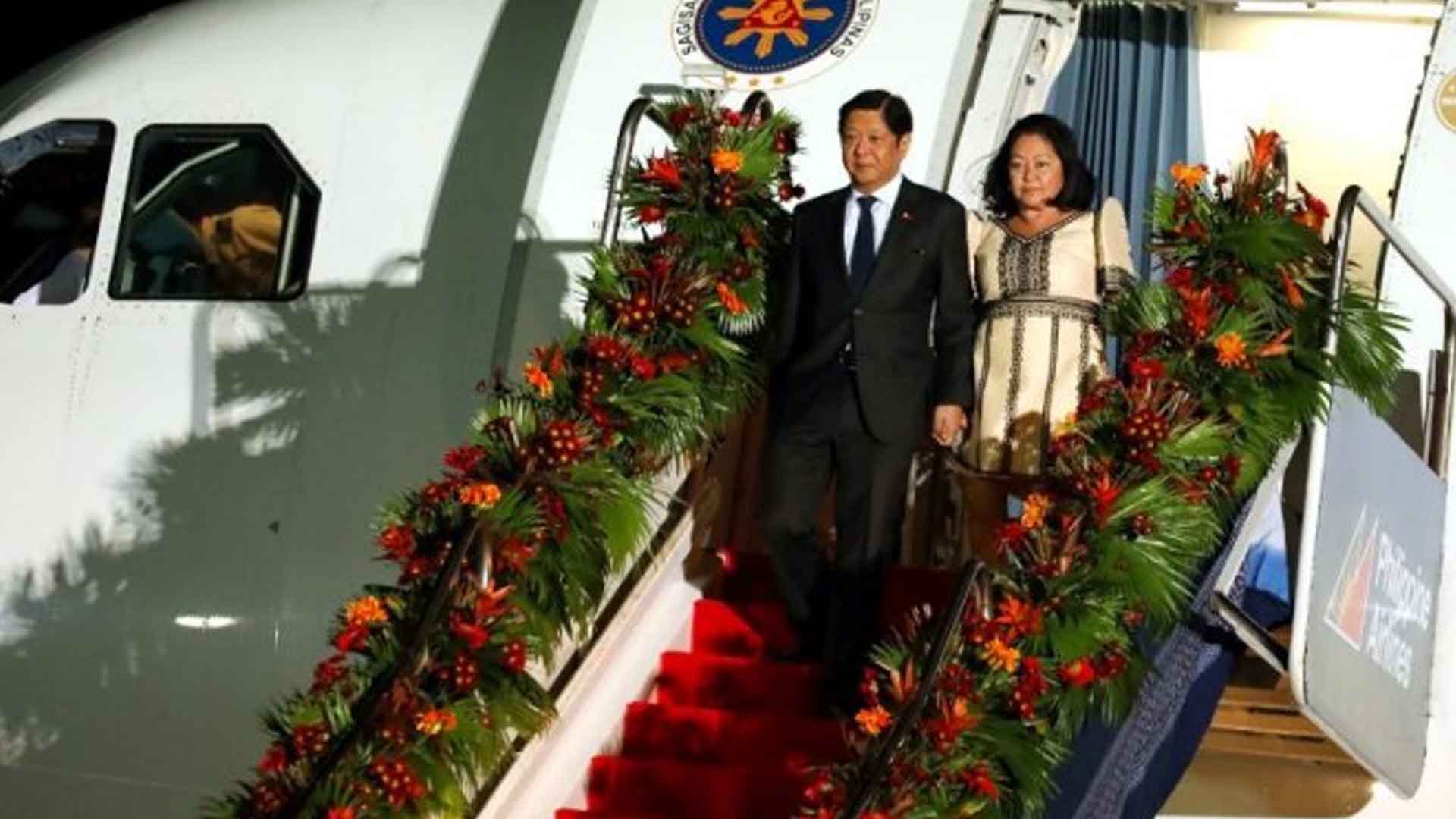President Ferdinand R. Marcos Jr. returned to Manila Sunday night from a five-day official trip to Japan bringing home USD13 billion worth of investment pledges that will help boost the economy and generate around 24,000 jobs for Filipinos.
Marcos, who was in Tokyo from Feb. 8 to 12, said the pledges were reached during roundtable meetings with business leaders and potential investors where he briefed them on the Philippines’ improved business climate and investment environment.
“Coming back, we carry with us over USD13 billion in contributions and pledges to benefit our people, create approximately 24,000 jobs and further solidify the foundations of our economic environment,” he said in his arrival speech at the Villamor Air Base in Pasay City.
He said key private sector representatives, who were part of the business delegation, engaged with Japanese industry giants to seize the economic opportunities now present in the Philippines
Marcos said his trip to Tokyo allowed him to also talk to chief executive officers (CEOs) of Japanese shipping companies and associations, which was important as Japan is the second largest maritime industry in the world and they employ at least 31,673 Filipino seafarers.
“That number constitutes 70 percent of the maritime crew of the Japanese ship owners and the Japanese shipping companies also have investments and long-term partnerships with Philippine stakeholders in maritime education and welfare programs,” he added.
Fruitful meetings
Meanwhile, Marcos described his meeting with Japanese Prime Minister Fumio Kishida as “very fruitful” as the Philippines and Japan are bound by “shared values” and “common aspirations.”
“We committed to further strengthen the strategic partnership between the Philippines and Japan and mapped out a transformative future-oriented partnership that is responsive to new developments,” Marcos said.
He said he and Kishida also cemented the two countries’ defense and security relations and covered a great deal of ground in the areas of agriculture, and information communications technology (ICT) cooperation through the signing of bilateral agreements that provide the framework for enhanced and mutually beneficial collaboration.
Marcos said Japan committed to providing infrastructure development loans for two major projects—the North-South Commuter Railway (NSCR) for Malolos-Tutuban and the NSCR Project Extension—which amount to 377 billion Japanese yen or about USD3 billion.
“The completion of these projects, along with other ongoing large-scale official development assistance (ODA) projects such as the Metro Manila Subway project and many more across the country are expected to translate to better lives for Filipinos through improved facilitation of the movement of people, goods and services,” he added.
Likewise, Marcos said he was honored to have an imperial audience with Emperor Naruhito and Empress Masako of Japan to reaffirm the shared commitment to enhance the close friendship and cultural ties between Manila and Tokyo.
Marcos said it was also a pleasure for him to speak before overseas Filipino workers in Japan and reassure them of ongoing efforts to create more job opportunities in the Philippines “so that working abroad will become a career choice and not the only option available to them.”
“I told them that we are working doubly hard to enact policies to forge partnerships that will make our economy more competitive and attractive to foreign investors and to entrepreneurs,” he said.
In closing, he said his official trip showed that the strategic partnership between the Philippines and Japan has “withstood the test of time.”
He also expressed confidence that ties between the two countries are “poised for a new decade of mutual trust, support, and benefit.” (PNA)







